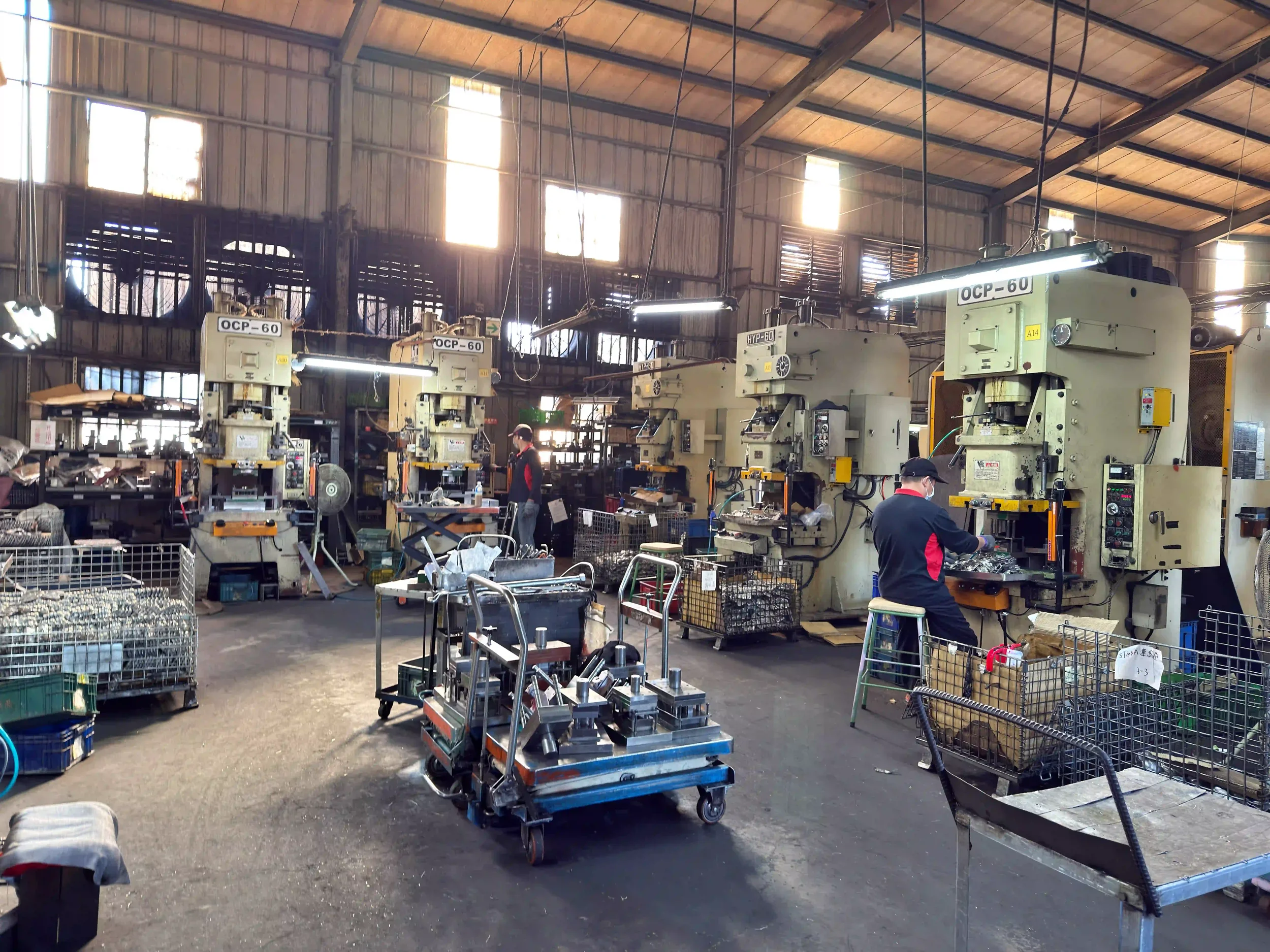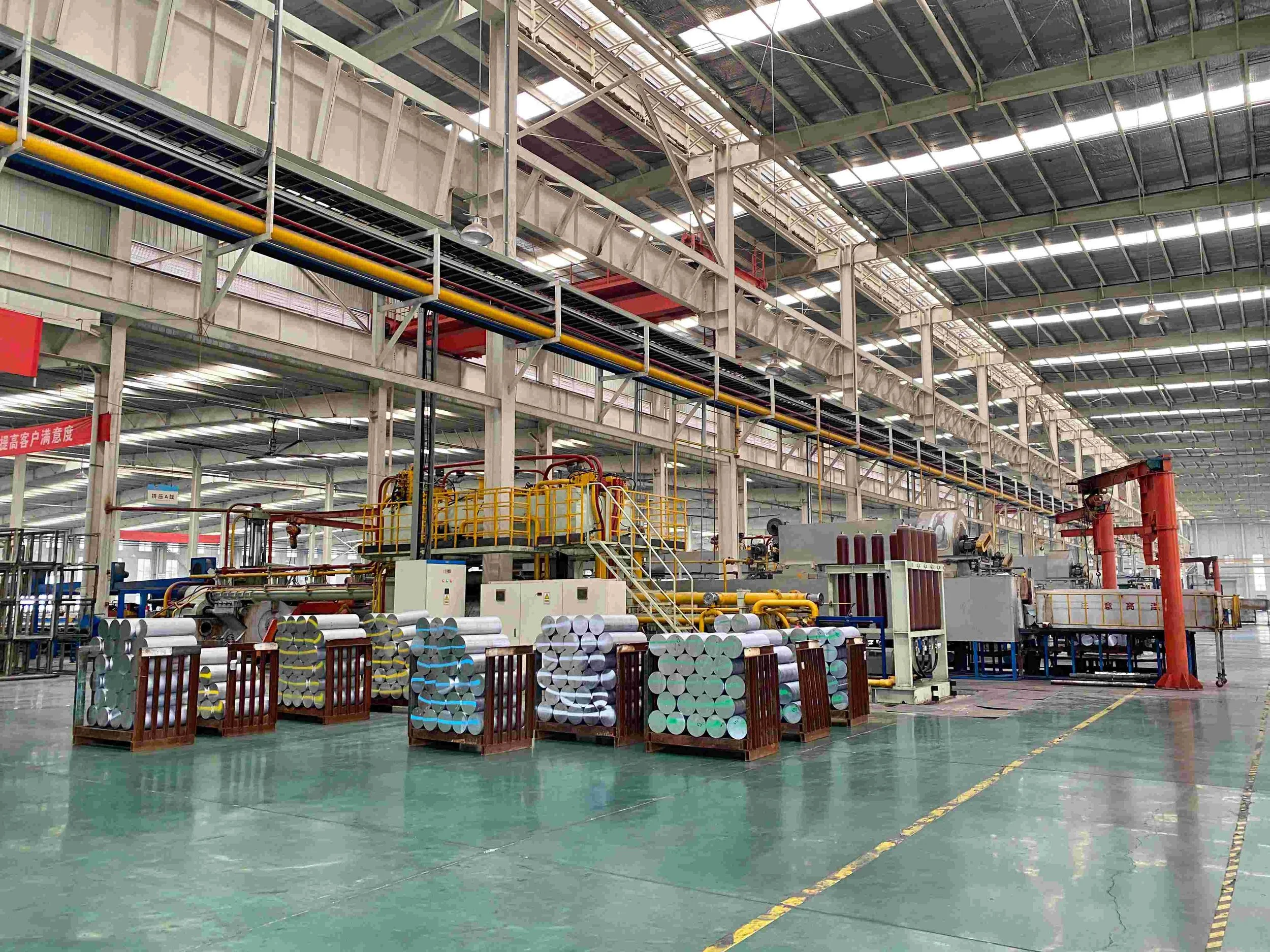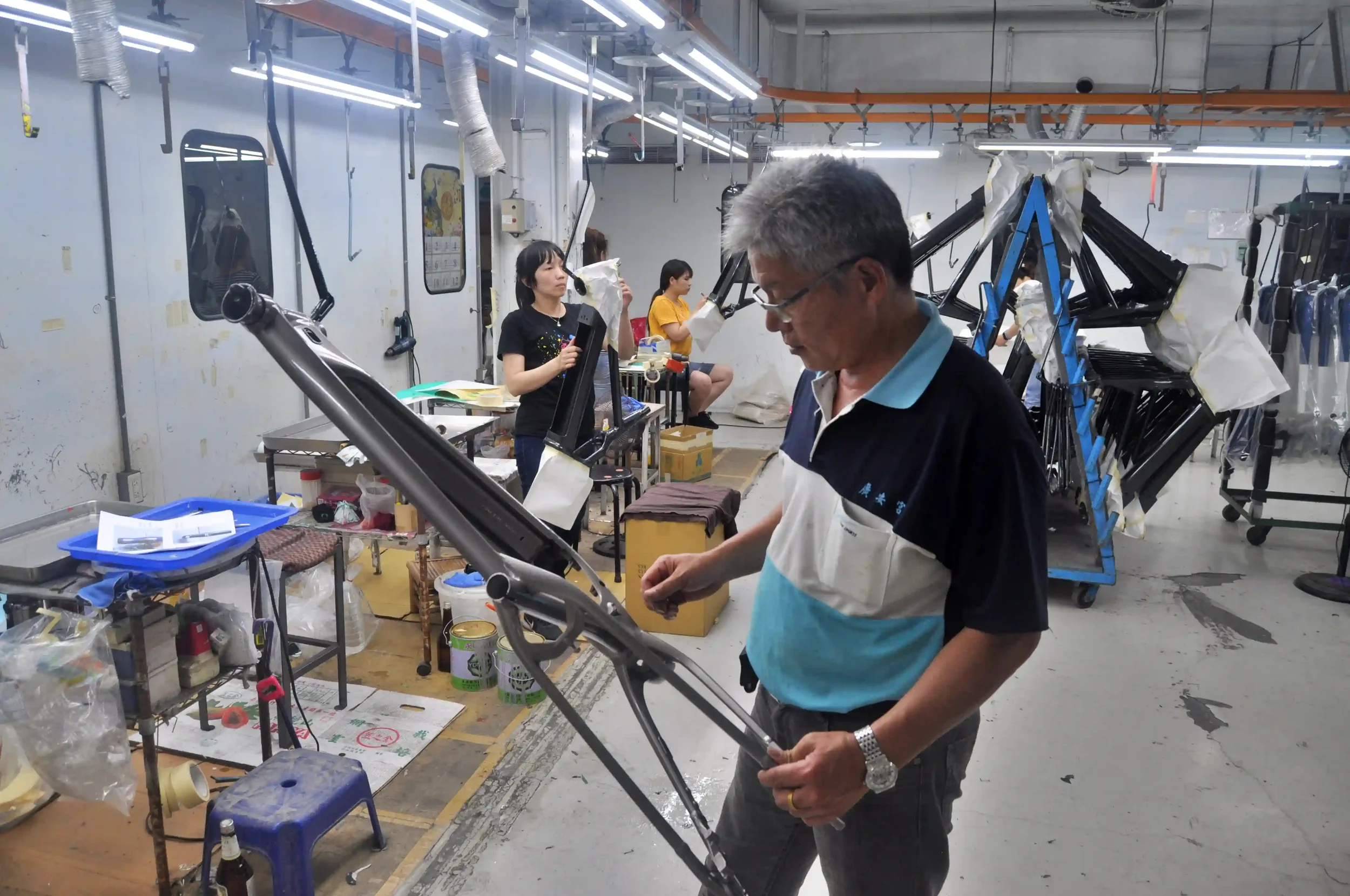What is a Trading Company and Do You Need One for Your Bike Business?
Disclosure: The author, Oerus Limited, is a Taiwan-based trading company specializing in the bike manufacturing industry.
What defines a trading company?
A trading company in the bike industry is typically known as a business-to-business (B2B) organization specializing in a specific range of products ranging from complete bikes, frames, components, and accessories. A trading company size can range from large multinational publicly traded corporations to small businesses to single person agencies. Trading companies in the traditional sense do not manufacture anything in-house, rather buying from its supply chain and then selling to its clients. Today, there are trading companies in the bike manufacturing industry that focuses on a single expertise or a multitude of services such as general consulting, design, engineering, product management, product sourcing, procurement, quality assurance (QA), quality control (QC), and logistics.
Why work with a trading company at all?
At the onset of bike manufacturing in Taiwan during the 1970s and China between 1980s-1990s, everything was more difficult in terms of contract manufacturing. Communication methods, lack of infrastructure, banking inefficiencies, slow transportation, language barriers, and an unestablished supply chain simply did not allow for foreign buyers to buy direct from factories. During this period of time, trading companies were essential as the facilitator or middleman between buyers and manufacturers.
Today, everything is much easier for buyers to work directly with manufacturers. Communications are instant, travelling is efficient, most sales staff at factories are well educated in English, and the supply chain has evolved into a well-organized ecosystem. The trading company continues to play a vital role in today’s supply chain, albeit less crucial than decades ago. Some large bike brands choose to continue working with their trading companies because they can attribute the long-term benefits of the value added services derived from the partnership. This can be anything from workflow optimization, financing of payment terms, integrated teams for essential roles in sourcing, procurement, development, QA/QC, managing of local resources, and freight consolidation. Smaller bike companies and startups can obviously also take advantage of these benefits but are actually also highly reliant upon trading companies to help facilitate some of their operations so that the short-term targets can be achieved faster and more effectively. The bottom line is that while well-organized and well-financed bike brands can work directly with manufacturers, there are always bike companies that need some help from trading companies to achieve or even maintain that status.
What are the disadvantages of working with a trading company?
Let’s go through the disadvantages first so that any common misconceptions can be clarified. The typical trading company is what the market likes to call “the middleman.” In the case of contract manufacturing, trading companies are the go between for buyers and factories regardless of if they are operating in a development, sourcing, management, QA/QC, or logistics capacity. Some of these concerns include the following:
Added cost.
The notion that “the middleman” will take a sizable margin that will ultimately reduce earnings of the buyer and raise prices for the consumer has given trading companies and distributors a negative connotation. From a more balanced perspective, the added cost of using trading companies or distributors is a trade-off in utilizing a service that allows for convenience, efficiency, effectiveness, etc. If a trading company or distributor does not provide measurable advantages and fails to contribute to the point that they are redundant, then working with that particular middleman is certainly disadvantageous. If the buyer continues to require services, then a replacement that can deliver results is necessary.
Supply chain transparency with manufacturers and service providers.
Dishonesty in the form of kickbacks or intellectual property theft.
If a trading company or specific agent is found to be unscrupulous in accepting kickbacks from suppliers or engaged in intellectual property (IP) theft, it is an obvious disadvantage, and they should be terminated immediately. If they are found to be lacking the prerequisite amount of supply chain transparency when carrying out its tasks, urgent action should be taken to address it. Think of it this way, if a company employee was discovered to be dishonest in the same way, then they will most likely be sacked immediately. These things can happen, and it is part of retaining a trading company or agent that can be trusted.
Operational redundancies.
Overdependency.
There are high-performing trading companies and there are mediocre trading companies – some have been established for decades but lack management or motivation, while some are relatively new and have concentrated specialties. As with any new business relationship, an in-depth vetting phase should be conducted to determine if a particular trading company is a good fit with the company. Concerns about operational redundancies or overdependency upon a trading company can potentially occur if there are inherent organizational issues within a business.
To avoid the common disadvantages of working with a trading company, establish due diligence in the form of a Service Contract and Non-Disclosure Agreements, ensure the terms of contract are precisely clear, set well-defined responsibilities and targets that are respectful for both parties, and foster a relationship based on trust and collectiveness.
What are the advantages of working with a trading company?
In a scenario where the trading company is operating optimally, there are plenty of advantages of working with one in the bike manufacturing industry whether the product is a complete bicycle or e-bike, bike frames, bike components, bike tools, bike accessories, etc. Here is a list of key advantages:
Workflow optimization in the form of establishing core processes for businesses, especially startups, helping with the product development and management roles, and guiding clients through unforeseen circumstances and production issues.
Trading companies come in handy for helping clients with specific tasks that are 1) Difficult to engage or manage without in-house experience or personnel; 2) Time consuming and detracts from core competencies such as design, sales, and marketing; 3) Unexpected problems that occur with a manufacturer that requires third party involvement. Utilizing a trading company enhances workflow optimization for a business seeking a leaner organization where some tasks are outsourced, while the more meaningful and more important tasks are managed by in-house employees.
A startup company with less experience or resources available may want to utilize a trading company in a consultative capacity to better understand the bike manufacturing industry in-and-outs, due diligence, cost analysis, compliance, and strategic planning for product and operations. Meanwhile, an established bike brand or even large corporate bike brand may retain one or multiple trading companies for specific tasks and services. The intent here is usually to help improve workflow optimization, but also to obtain the know-how and experience of the trading company for developing in-house capabilities.
Brands and original equipment manufacturers (OEMs) that build complete bikes outside of Asia are a prime example of companies that often rely heavily upon trading companies to handle the bulk of their frames and components procurement, consolidation, and logistics. For instance, if a brand with its own bike assembly factory in the United States were to attempt direct procurement of its parts from each and every supplier, a significant amount of resources are required to handle the workload. It can save from having to pay a trading company for its services but will need to retain the back-office manpower to manage the paperwork and the factory manpower to handle incoming quality control and kitting.
Another example is the bike share operating companies Bird, Citi, Lime, and Lyft – all of which retain trading companies to assist with product development, sourcing, procurement, product management, production management, QA/QC, and logistics for their bike manufacturing operations. Doing so allows these companies to focus on their key business of enhancing ride share coverage, marketing, user experience, and product maintenance – without diverting resources to deal with product manufacturing.
Financing payment terms for short-term or long-term productions.
More often than not, businesses need to buy small quantities of certain product or a combination of products. The cost of wire transfers can add up quickly, especially if it is necessary to arrange multiple payments to different suppliers first for the deposit and second for the balance. This is where utilizing a trading company is beneficial for minimizing the number of separate payments and financing of payment terms when the business relationship has positively evolved over time. One of the core functions of typical trading companies is supplier consolidation. Clients will send a single payment to its trading company who then places official purchase orders and arranges payments to manufacturers. As simple as it seems, operating sourcing and procurement in the bike manufacturing supply chain requires a competent organization with sufficient experience in issuing formal purchase orders, managing supplier invoicing and payments, scheduling deliveries while balancing cash flow, dealing with accounting with local and export taxes, etc. As such, clients can benefit tremendously by having only “one” supplier – the trading company – rather than a host of suppliers.
The financing of short term or long-term productions is in reference to some businesses that leverage their established relationship with a trading company to attain more flexible payment terms. The same may also occur with businesses that deal directly with a manufacturer that has a significant percentage of its production capacity vested. Yet, in the scheme of things, a well-established trading company is typically better suited to offer its clients advantageous payment terms based on its accrued procurement volume for a combination of clients and its own leverage over manufacturers. A smaller and competent trading company can also achieve advantageous payment terms for clients by negotiating with manufacturers. Finally, a trading company can also help its clients indirectly obtain financing for production by leveraging local banks to provide low-interest loans on production orders.
On-site manufacturing control as a measure to engage with manufacturers before, during, and after production, allowing for real-time constructive feedback to clients.
Trading companies offer clients with the invaluable service of having dedicated personnel on-site at manufacturing locations where they can observe, discuss, and check production processes from start to finish. For bike production, this proves to be immeasurably helpful for both manufacturers and clients as it will reduce inefficiencies and errors along the way. When significant challenges occur and the so-called “production hell” cause manufacturing disruptions or delay, competent trading companies are often better situated than manufacturers to provide unbiased analysis of the actual situation and suggest practical solutions that can potentially be unfavorable for a manufacturer to consider offering.
Conducting third-party QA/QC that can complement manufacturing and product quality goals; or labor and environment sustainability requirements.
One of the key competencies of successful trading companies will always be how good their QA/QC program is. This is especially true for the bike manufacturing industry, where the supply chain for complete bikes, frames, components is spread out between several countries and exists without strict centralized certification bodies like the automotive or aerospace industries to govern international product quality, labor, and environmental standards. Unless a business has the resources for dedicated in-house personnel to conduct QA/QC, retaining a trading company for quality assurance and quality control operations is recommended for all high-volume manufacturing no matter how good the manufacturer is. This is simply a key facet of good supply chain management.
Value-added services that extend beyond a manufacturer such as the consolidation of products from multiple suppliers for light assembly, postponement, fulfillment, distribution, or freight forwarding.
There are many forms of value-added services that certain trading companies are capable of. Facilitating each manufacturing process as a value-added service is most common as low-volume product customization of bike frames, components, accessories has become more sought after. Naturally, manufacturers are disinclined to work on such requests, therefore, it is up to trading companies to help clients facilitate what is known as postponement, where product configuration is pushed back until the client can confirm its market demand. Through this arrangement, trading companies provide clients with advantageous flexibility and helps improve the client’s responsiveness to market changes.
There are hundreds of different types of industries that rely upon contract manufacturing with trading companies acting as authorized contractors or distributors. Take for example, Shimano’s original equipment manufacturer (OEM) business in East Asia, where bike assembly manufacturers can only procure Shimano product from authorized Japanese and Taiwanese trading companies. This allows Shimano to focus on their core competencies while the trading companies deal with the sales and logistics side of the business.
The task of managing hundreds of product categories for shipping, warehousing, freight forwarding, local fulfillment, and international distribution requires a strong logistics organization that some trading companies have the resources and expertise to offer. Many bike brands maintain local logistics personnel or utilize trading companies near their manufacturing hubs for the sole purpose of ensuring smooth logistics. This has proven to be extremely helpful for certain brands that cater to OEM production and require resources on the ground close to the manufacturing hubs, while certain brands that have sales channels with international distributors and retailers can supply rapidly from the source.
Conclusion
When a brand decides that it needs help with its supply chain side of the business, there are definite advantages for working with a competent trading company. A competent trading company will help work wonders as long as all the terms and conditions are clear for both parties and they continue to do a good job to help advance the business. However, working with an incompetent trading company or one that does not have a strong set of organization and integrity will certainly be disadvantageous. This is basically true for any set of business relationship. Make sure to understand a trading company’s technical capabilities, experience, communication level, and work ethic before engaging in business.










